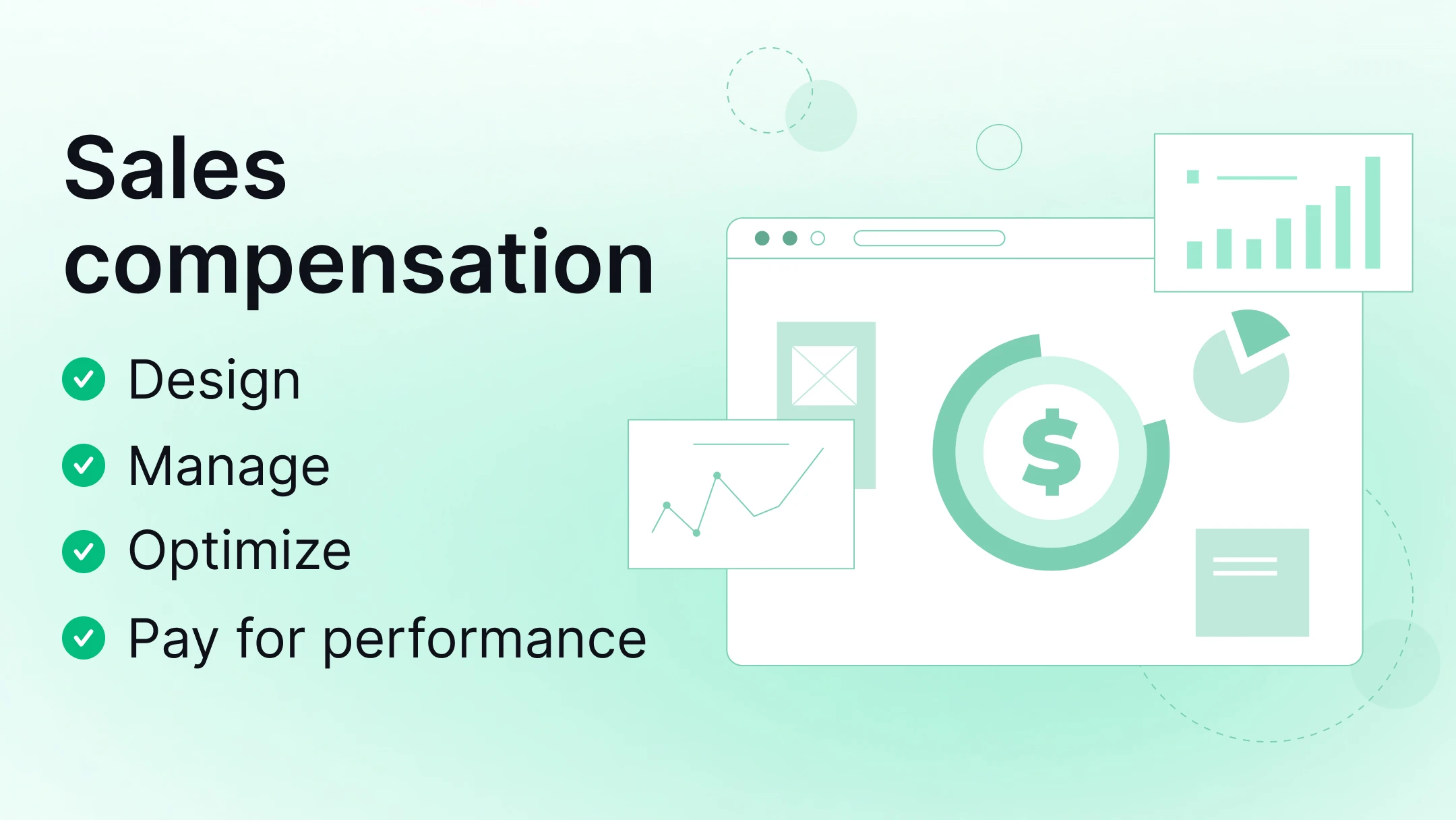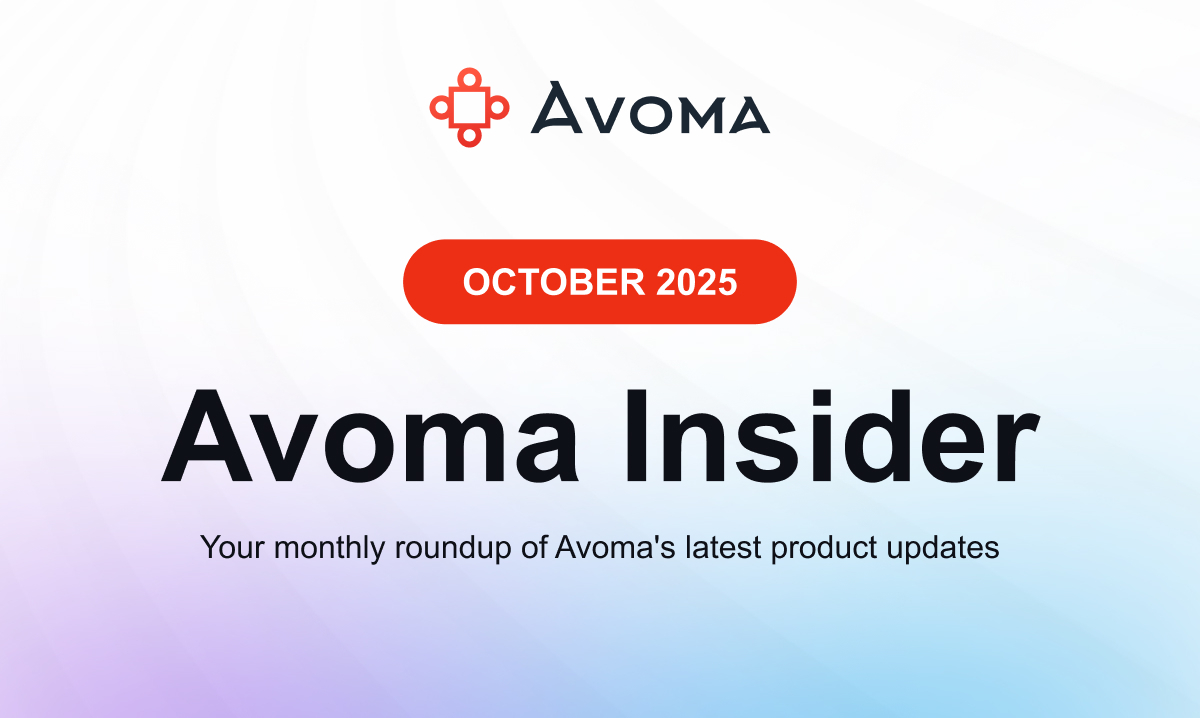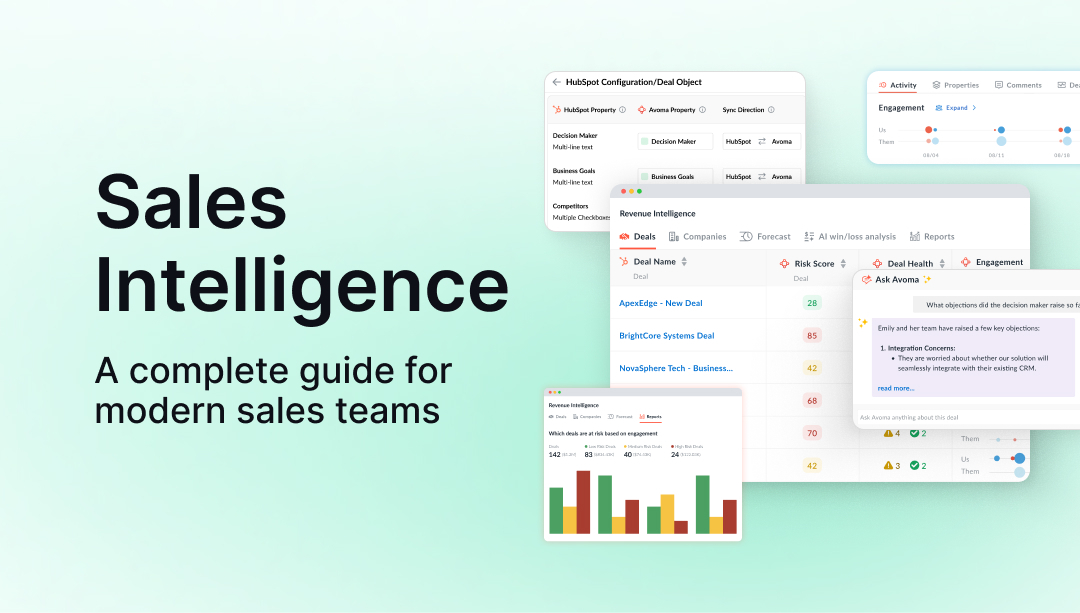Conversation Intelligence Software: Why It's Useful, Who Should Buy It, and Who Benefits From It
Table of Contents:

Conversations with prospects and customers are one of the best ways for you to learn the pain points your target customer has, what objections they have, who they view as your competition, and ways that you could improve your product.
But there’s a problem: That valuable information is usually lost after a phone call with the customer/prospect.
Notes from the sales conversations weren’t taken properly, the important information from the call never made it into the CRM, and/or the information from the conversation wasn’t passed to other members on the team.
All of the knowledge that could’ve helped your company close more deals, overcome objections, and improve the product is now lost because there isn’t a process in place to capture and get this feedback to other stakeholders in your company.
This is the problem that conversation intelligence software solves.
In this post we’ll share:
- What is conversation intelligence?
- Why conversational intelligence software is useful for any B2B sales/customer success organization
- When the best time to purchase conversational intelligence software is
- How different people in the organization can benefit
- The top providers of conversational intelligence software
What is conversation intelligence?
Conversation intelligence typically refers to a software that records, transcribes, and analyzes customer and prospect conversations. The software allows sales reps, account managers, and customer success managers to gain deeper visibility into their conversations and learn how to improve those conversations.
The foundation of these softwares is to record calls and meetings and use artificial intelligence (AI), convert speech into text, and then do more advanced analysis on the raw test. Thus by default, all products featured in this category include call recording and transcription capabilities.
But since email is a key channel for sales conversations, these platforms also analyze email content these days.
Using natural language processing (NLP), these platforms analyze conversations to identify topics discussed, talk patterns, questions asked, customer objections, sentiment, and more.
Using these insights, you can:
- Get visibility across all conversations to make data-driven coaching recommendations
- Identify the best talk patterns that the team should adopt to increase quota attainment
- Proactively learn issues in deals and accordingly guide the team to improve win rate
- Coach and onboard their team continuously in a lot lesser time
Why a Conversation Intelligence Software is Useful for any B2B Organization
As we shared above, conversational intelligence helps record and analyze conversations from both sales and customer calls to help sales reps easily access key information from their conversations, speed up data entry into their CRM, and pass information to other stakeholders on their team.
For executives on both the sales and success/support side, it provides a way to help coach and train team members after easily listening into key points of conversations (like how reps answered questions and objections), it helps bridge alignment across the sales and customer success organization and helps with the passing of key insights to other teams (like product and marketing).
Conversational intelligence software is different from your standard call recording software or cloud meeting solutions (like Zoom) because it analyzes conversations for you, takes notes for key topics (using conversational ai and machine learning), and allows you to easily access important moments from the conversations.

Beyond just the recording benefit, it turns individual calls into something that can be beneficial to the whole team. Instead of important information being kept siloed to one team member or department, conversation intelligence software helps team members access important customer information and spread it to all of the important stakeholders.
Conversation Intelligence in Action: Use Cases for Different Team Sizes
Many companies think they can only benefit from conversational intelligence software when they get larger, however, we wanted to dispel that myth by describing how different sized teams can get value from these tools.
Founding Stage Team (1 person)
For Customer Development
If you are a one-person sales, success and support team, that means you’re really early in your company’s journey and juggling between way too many responsibilities with very limited bandwidth.
At that early stage, customer development is a crucial step to capture customer feedback, learn their stories and pain points they experience, and share these insights with your product team so they can hear it first hand or use their verbatim in your Sales and Marketing copies so you can build product that people want and market it successfully.
But taking detailed notes for every meeting and sharing these insights with the team is not only cumbersome but also becomes challenging when you have 20 other priorities fighting for your attention.
So having a way to easily record all calls and go back to listen to conversations comes really handy when you didn’t even know you had a need for this. Imagine you had a sales call a couple of months ago and you couldn’t quite remember the reason they didn’t close. Having a tool that allowed you to easily access key parts of the conversation to refresh your mind and getting back to the prospect with the exact concerns they discussed is really effective.

Early Stage Team (2-5 reps)
For Building Sales Playbook
When you’re at an early stage and growing, every sales and customer conversation is a learning experience. You’re still trying to figure out a pitch and process that works and there needs to be a way to pass key pains that the customers have, the objections that they have, the buyer psychology, the competitors you’re up against in deals, to other salespeople and other stakeholders on the product and marketing teams -- so that everyone can learn and improve.

For Ramping Up and Coaching Reps
Also, if you’re a manager managing a team of 2-5 reps, it really gets harder to shadow every single reps’ every single call. You want to know what’s going on in each call so you can train the team, but the reality is, that’s just too unscalable. And then you end up cherry-picking a few reps, a few calls, but never 100% sure what happened in the rest of the calls.
With a conversational intelligence solution, you get the freedom and control back. You can decide which calls to attend in person, but never have to worry about missing another call. And more importantly, with these advanced solutions, now you can review calls faster, learn which calls to focus on first, which reps need to the most help, etc.

Growth Stage Team (5-30 reps)
For Visibility
At this stage, now you already have a set process across your sales organization. Discovery calls are done a certain way, sales demos are being done a certain way, and you want consistency across how the team should selling. Conversational intelligence solution helps you get the visibility that everyone is following the process that works.
For Timely CRM Data Entry
If you are using a tool like Salesforce, oftentimes the sales reps don’t enter all the information in the same way (or worse sometimes forget to enter information at all). And as a manager, no data or partial data means, your reports and forecasts are inaccurate.
This is also a challenge when there is a turn-over in a team and you need to handoff active opportunities to other salespeople on the team. The new reps would not have enough context, they wouldn’t know what information prospect has already shared, what they have agreed upon as the next step. And now instead of building rapport from scratch and going through the same process again, it would be far more effective if the new reps can get the full context, and move forward the deal without any delays and bad experience to the prospect.
If you have a conversation intelligence software deployed, which automatically records every customer conversation, transcribes and summarizes notes of the key topics, you can always ensure the important information is available in CRM in a timely manner, and when needed, you can get the context of previous interactions instantly.

For Coaching & Learning Trends
A sales manager, it’s very clear to know how to manage and coach both top performers and bottom performers. The job becomes challenging when it’s time to manage and coach the middle-pack, the majority of your team. Obviously, your goal is to transform these average performing reps to be the top-performing reps. But analyzing hundreds of calls across all these reps is just humanly impossible.
Thanks to conversation intelligence solutions, which can enable you to easily see who are your top-performing reps, which ones are struggling, and which ones are in the middle of the pack who need your attention and coaching. The conversation intelligence software can also help you understand what are talk-tracks of the top-performing reps. What topics they cover in what stages, how much time they spend, how much they talk vs listen, how many questions they ask, etc. You can leverage this information so your average performing can learn what to do more and what to do less. In addition, this also encourages peer coaching among sales reps that help building a healthy culture in your team.

Enterprise Teams
For Team Review & Best Practices
Everything that you do in Growth Stages, you will need to do similar activities even at the Enterprise level as now you’re adding new product lines, expanding into new verticals, and growing your team to go after new markets. As you start growing your organizations, now you have to spend more time grooming your next managers. You need to enable these managers with the right tools so they can conduct team reviews, 1:1s with their team members.
Conversation intelligence software lets you review your team’s calls easily where everyone can listen to a particular rep’s call, discuss and brainstorm what went well and what can be improved. It encourages team feedback and peer learning. And these learnings can be shared across other teams and the rest of the organization.
Who Benefits From The Software? (How it helps in your day-to-day routine)
Sales reps (SDR and AE)
The biggest benefit of Conversation Intelligence software is to the Sales reps. They can be more present during the calls, focus on listening to what customers are saying, asking the right questions, and not getting distracted with multi-tasking while taking notes and getting worried about if they are going to miss critical information. In addition, they get summarized notes for key topics and then can add additional notes as needed later on, and then sync these most comprehensive notes to the CRM record in much lesser time.
The call listening and reviewing aspect of the software allows the individual reps to understand how did the call go, what they said well, and what they didn’t say well that can be improved next time. In addition, if there is a followup call, the sales rep can review the original call prior to the followup call.
Sales Leaders
Your main job is to train your new hires and help your sales reps improve. With conversation intelligence software, all conversations are recorded and analyzed at scale, so you can listen to specific topics of interest or calls that need attention in a much faster way. This is extremely efficient compared to the traditional way of shadowing your teams’ calls or having to listen to the web conferencing recordings in entirety to guess who said what and when.
In addition, you also get to see aggregated conversation insights across each rep across all their calls you can identify best patterns.
Product and Marketing Teams
These teams need to understand what customer wants, what are their needs, what are their objections in order to build better products, in order to write a compelling copy for the marketing landing page, etc. So instead of having to ask for the sales calls individually (or listen in on them), they can search for specific keywords or phrases, and see the trends of those across all conversations. Then they can decide to dive into specific calls and listen to that specific mention in a matter of a few minutes with the help of Conversation Intelligence software.
CEOs
Most organizations have siloed teams. Information from marketing is kept in marketing, product in product, and so on and so on. The organization doesn’t have an effective tool to communicate feedback across the team. This affects the end to end customer experience because the marketing may not align with the product which may not align with the pain points that are being discussed on the sales calls. Conversational intelligence helps build alignment across all teams in the organization.
Interested in a Software Platform That Can Help?
If you’re looking for a solution that helps with coaching, training and helps sales reps with productivity and improves their efficiency then we’d recommend you take a look at our product Avoma.
Avoma is the only platform that allows both managers and sales reps can use as a workflow solution. Unlike other conversation intelligence platforms, Avoma allows for ongoing learning and productivity gains because it isn’t positioned only for managers training junior sales reps. This means that senior reps, who typically aren’t being mentored by their managers, or do not have time to take manual notes, use Avoma to be more effective and efficient in their meetings.
Avoma seamlessly integrates into other software such as CRM (Salesforce, HubSpot), Video Conferencing (Zoom, GoToMeeting), Dialers (Aircall, RingCentral), and Calendar (Google, Outlook) to name just a few.
Frequently Asked Questions






What's stopping you from turning every conversation into actionable insights?











